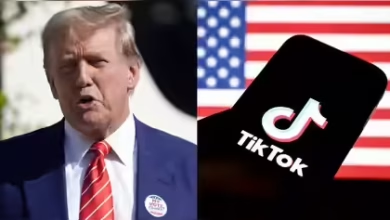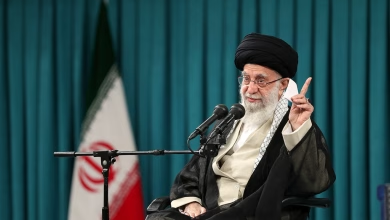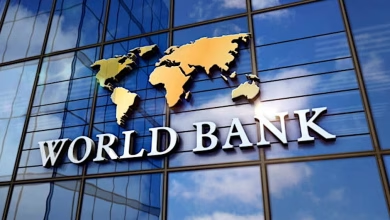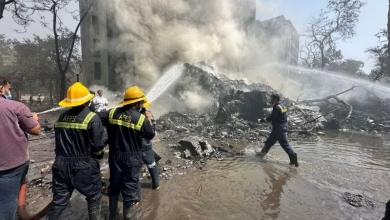What happens next in Iran after President Raisi’s death?
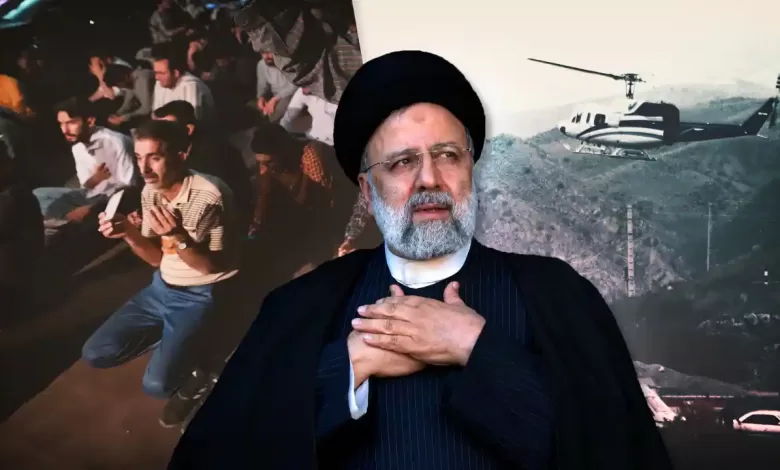
Iran’s President Ebrahim Raisi, a hardline cleric who was widely tipped to succeed Supreme Leader Ayatollah Ali Khamenei, has been killed in a helicopter crash on Sunday. The tragic event has upended speculation over who will eventually replace the 85-year-old Supreme Leader, whose health has long been a subject of intense interest.
Raisi’s death is not expected to disrupt the direction of Iranian policy or jolt the Islamic Republic in any consequential way. However, it will test a system where conservative hardliners dominate all branches of power, both elected and unelected.
“The system will make a massive show of his death and stick to constitutional procedures to show functionality, while it seeks a new recruit who can maintain conservative unity and loyalty to Khamenei,” said Dr. Sanam Vakil, director of the Middle East and North Africa programme at the Chatham House think tank.
Raisi’s opponents will hail the exit of a former prosecutor accused of a decisive role in the mass execution of political prisoners in the 1980s, which he denied; they will hope the end of his rule hastens the end of the regime. For Iran’s ruling conservatives, the state funeral will be an occasion freighted with emotion; it will also be an opportunity to start sending signals of continuity.
Another critical position that must be filled is the seat held by Raisi on the Assembly of Experts, the body empowered to choose the new supreme leader when that transition comes. “Raisi was a potential successor because, like Khamenei himself when he became supreme leader, he was relatively young, very loyal, an ideologue committed to the system who has name recognition,” said Dr. Vakil.
Even before Raisi’s death was officially confirmed, Ayatollah Khamenei conveyed in a post on X that “the Iranian people should not worry, there will be no disruption in the country’s affairs.” The more immediate political challenge will be staging early presidential elections. Power has been transferred to Vice-President Mohammad Mokhber; new elections must be held within 50 days.
This appeal to voters will come just months after March’s parliamentary elections revealed a record low turnout in a country which once prided itself on strong enthusiastic participation in this exercise. Recent elections, including the contest in 2021 which brought Raisi to the presidency, were also marked by the systematic exclusion of moderate and pro-reform rivals by the oversight body.
“Early presidential elections could provide Khamenei and the upper echelons of the state with an opportunity to reverse that trajectory to give voters a way back into the political process,” said Mohammad Ali Shabani, editor of London-based news website Amwaj.media. “But, unfortunately, so far we have seen no indications of the state being ready and willing to take such a step.”
But even within Raisi’s ranks, there appears to be no obvious successor. “There are different camps within this conservative group, including individuals who are more hardline and others regarded as more pragmatic,” pointed out Hamidreza Azizi, a visiting fellow at SWP, the Berlin-based think tank. He believes this will intensify the current jockeying for position within the new parliament and at local levels.
Whoever assumes Raisi’s mantle inherits a forbidding agenda and limited levers of power. Ultimate decision-making authority in the Islamic Republic lies with the Supreme Leader. Foreign policy, especially in the region, is the preserve of the Islamic Revolution Guard Corps (IRGC), who wield growing power.
The president didn’t call the shots months ago when Iran confronted unprecedented tensions with its arch-enemy Israel over the devastating Israel-Gaza war. It triggered a dangerous tit-for-tat and set alarm bells ringing in many capitals, most of all Tehran, over the potential for an even riskier escalatory spiral.
But as he presided over day-to-day business, Iranians struggled to cope with deepening financial hardship linked to crippling international sanctions as well as mismanagement and corruption. Inflation soared to more than 40%; the rial currency plunged in value.
On his watch, the Islamic Republic was also shaken by an extraordinary wave of protests sparked by the death in custody in September 2022 of 22-year-old Mahsa Amini, who was detained by morality police for allegedly violating Iran’s strict dress code. Weeks before the unrest, Raisi had ordered a tightening of Iran’s “hijab and chastity law,” which obligated women to behave and dress modestly, including wearing a headscarf.
But the protests spearheaded by a young generation of women, lashing out against a raft of restrictions imposed on their lives, mainly focused their fury on the real sources of power, the Supreme Leader and the system itself. Human rights groups say hundreds were killed in the crackdown and thousands



